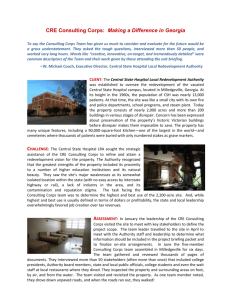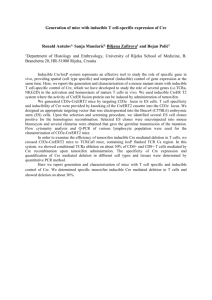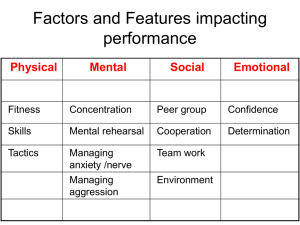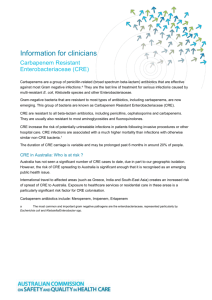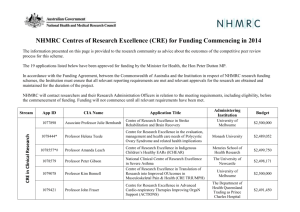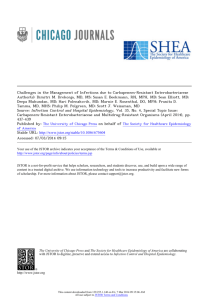Word 479KB
advertisement
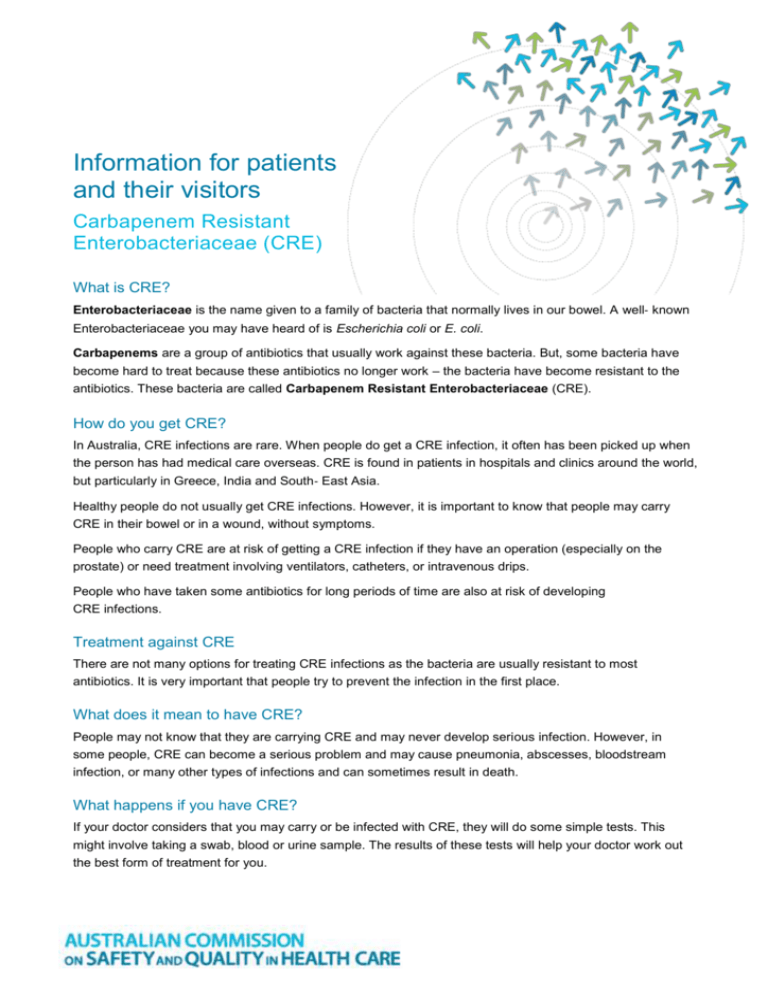
Information for patients and their visitors Carbapenem Resistant Enterobacteriaceae (CRE) What is CRE? Enterobacteriaceae is the name given to a family of bacteria that normally lives in our bowel. A well‑ known Enterobacteriaceae you may have heard of is Escherichia coli or E. coli. Carbapenems are a group of antibiotics that usually work against these bacteria. But, some bacteria have become hard to treat because these antibiotics no longer work – the bacteria have become resistant to the antibiotics. These bacteria are called Carbapenem Resistant Enterobacteriaceae (CRE). How do you get CRE? In Australia, CRE infections are rare. When people do get a CRE infection, it often has been picked up when the person has had medical care overseas. CRE is found in patients in hospitals and clinics around the world, but particularly in Greece, India and South‑ East Asia. Healthy people do not usually get CRE infections. However, it is important to know that people may carry CRE in their bowel or in a wound, without symptoms. People who carry CRE are at risk of getting a CRE infection if they have an operation (especially on the prostate) or need treatment involving ventilators, catheters, or intravenous drips. People who have taken some antibiotics for long periods of time are also at risk of developing CRE infections. Treatment against CRE There are not many options for treating CRE infections as the bacteria are usually resistant to most antibiotics. It is very important that people try to prevent the infection in the first place. What does it mean to have CRE? People may not know that they are carrying CRE and may never develop serious infection. However, in some people, CRE can become a serious problem and may cause pneumonia, abscesses, bloodstream infection, or many other types of infections and can sometimes result in death. What happens if you have CRE? If your doctor considers that you may carry or be infected with CRE, they will do some simple tests. This might involve taking a swab, blood or urine sample. The results of these tests will help your doctor work out the best form of treatment for you. To prevent the spread of CRE to other people when you are at home, it’s important that you follow these precautions: Wash your hands with soap and water and dry them thoroughly. For example, after going to the toilet, before preparing and eating food and after touching animals. Use your own towels and face cloths. Do not share these items with other people. Avoid sharing grooming items such as nail scissors, tweezers, razors and toothbrushes. Cover any skin wounds whenever possible. Make sure you follow instructions and advice provided by your doctor or healthcare provider on how to care for wounds, or manage medical devices. However: All your clothing and towels can be washed the way you normally do. All eating utensils and dishes can be washed the way you normally do. If you are in a hospital, in addition to usual practice, such as staff regularly washing their hands or using alcohol based hand rub, the staff will use special practices to reduce the risk of spreading CRE to other patients. These may include: Caring for you in a single room. Wearing a gown and gloves while they are caring for you. You can help prevent spreading CRE to other patients by: Regularly washing your hands with soap and water or using an alcohol based hand rub. Staying in your room, unless you need to be transferred for special tests or treatment. If you have CRE, can you have visitors? If you have CRE, you can have visitors, but it is important to know that CRE can affect people who have some long-term health problems. Talk with your doctor or nurse if someone is visiting you and has a longterm health problem. It is important that your visitors wash their hands or use an alcohol based hand rub before and after visiting you. Visitors may also be asked to wear gloves or gowns. Where can I get more information? If you have any questions, the hospital’s infection control professional or the doctor or nurse looking after you or your family can help. More information on CRE is available from The Australian Commission on Safety and Quality in Health Care Recommendations for the control of Multidrug resistant Gram-negatives: carbapenem resistant Enterobacteriaceae (2013) www.safetyandquality.gov.au NHMRC, Australian Guidelines for the Prevention and Control of Infection in Healthcare (2010) www.nhmrc.gov.au Hand Hygiene Australia (2008) Health Care Associated Infections. www.hha.org.au 2 | Australian Commission on Safety and Quality in Health Care Acknowledgements The Tasmanian Infection Prevention & Control Unit, Department of Health and Human Services. Australian Commission on Safety and Quality in Health Care Level 7, 1 Oxford Street, Darlinghurst NSW 2010 | GPO Box 5480, Sydney NSW 2001 Phone: (02) 9126 3600 (international +61 2 9126 3600) Fax: (02) 9126 3613 (international + 61 2 9126 3613) Email: mail@safetyandquality.gov.au www.safetyandquality.gov.au Information for patients and their visitors: Carbapenem Resistant Enterobacteriaceae | 3


